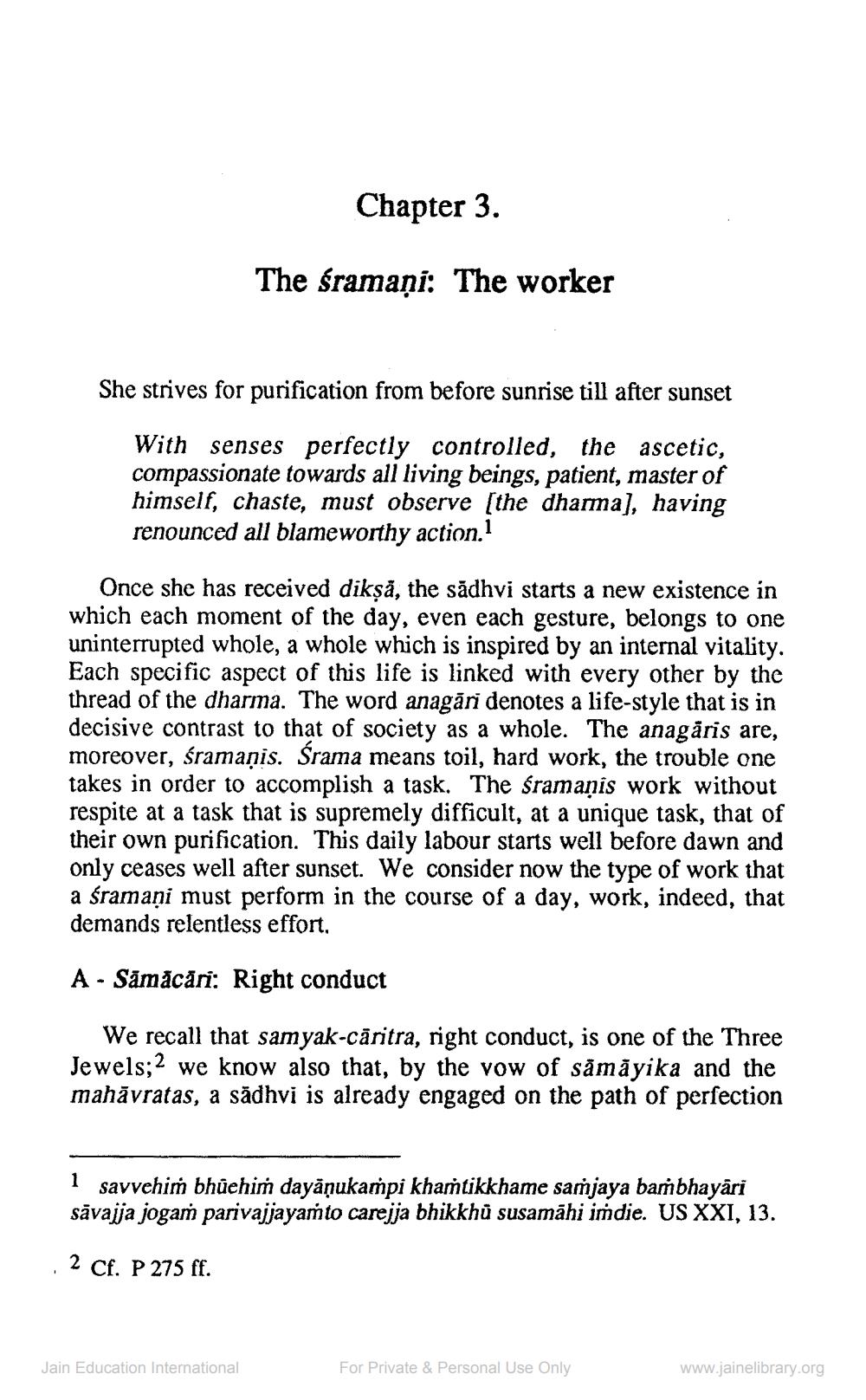________________
Chapter 3.
The śramaņi: The worker
She strives for purification from before sunrise till after sunset
With senses perfectly controlled, the ascetic, compassionate towards all living beings, patient, master of himself, chaste, must observe [the dharma], having renounced all blameworthy action.1
Once she has received dikṣā, the sadhvi starts a new existence in which each moment of the day, even each gesture, belongs to one uninterrupted whole, a whole which is inspired by an internal vitality. Each specific aspect of this life is linked with every other by the thread of the dharma. The word anagāri denotes a life-style that is in decisive contrast to that of society as a whole. The anagäris are, moreover, śramanis. Śrama means toil, hard work, the trouble one takes in order to accomplish a task. The śramaņis work without respite at a task that is supremely difficult, at a unique task, that of their own purification. This daily labour starts well before dawn and only ceases well after sunset. We consider now the type of work that a śramaņi must perform in the course of a day, work, indeed, that demands relentless effort.
A- Sāmācāri: Right conduct
We recall that samyak-cāritra, right conduct, is one of the Three Jewels;2 we know also that, by the vow of sāmāyika and the mahāvratas, a sādhvi is already engaged on the path of perfection
1 savvehim bhūchim dayāņukampi khaṁtikkhame samjaya baṁbhayari sāvajja jogam parivajjayamto carejja bhikkhū susamāhi imdie. US XXI, 13.
2 Cf. P 275 ff.
Jain Education International
For Private & Personal Use Only
www.jainelibrary.org




